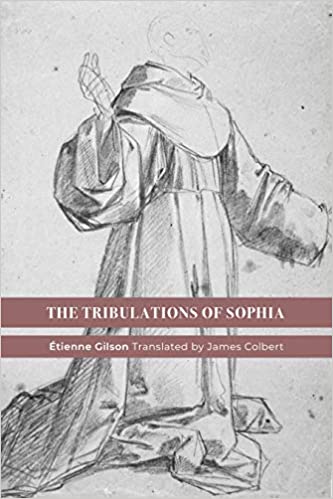
|
The Tribulations of Sophia by Etienne Gilson (Author), James G. Colbert (Translator) St. Augustines Press; 1st edition (June 30, 2021). 130 pages. The Tribulations of Sophia was the last of Étienne Gilson's books to appear during his lifetime (1967). French readers would have recognized the title's echo of a nineteenth century children's book by the Countess of Ségur, the Misfortunes of Sophia. Its disobedient protagonist, young Sophia (of whom the American Dennis the Menace was to be a very pale imitation) is the cause of a sequence of minor domestic catastrophes. One wonders if Gilson is proposing that the Catholic intellectual world of his day is fraught with her descendants.
The heart of the book is entitled, “Three Lectures on Thomism and its Current Situation.” During the Second Vatican Council and its immediate aftermath, the status of Thomism in Catholic intellectual circles and institutions was vigorously challenged. Once again, the problem of Thomism emerges: What is Thomism and where does it belong? Gilson’s devotion to elaborating the nature of Christian philosophy compels him to confront this question head-on. Indeed, because Gilson approaches Thomism as the veritable model for Christian philosophy he cannot ignore the attempts to suppress or supplant it. And yet this section also contains a fourth lecture on Teilhard de Chardin, whom Gilson knew and held in high esteem. Was Teilhard's thought to become the new Christian philosophy and theology? Was it even appropriate to label his thought as proper philosophy and theology? The second, somewhat shorter, portion of the book wrestles with the theme of dialogue that was very much in vogue in the 1960s. The central figure here is the French Marxist Roger Garaudy, internationally known for his call to dialogue with Christians. Gilson denies any possibility of such a dialogue, and certainly any usefulness in it. “I regret to say—not having myself any of the virtues of a skilled dialoguer, which are not to listen to what is being said and to take it in a sense that makes it easy to refute. It is a chimerical hope that there should be two people who proceed otherwise.” But specifically on the point of Christian and Marxist dialogue, from the massive ideological, bestial corpus of Marxism Gilson carves out its fundamental need for the world and serves it back to Garaudy, but without garnish, for among Marxists each has his own particular manner of impoverishing the concept of man. What might be called the postscript of the book, “Wandering Amid the Ruins,” shares some of Gilson's own experiences and unease in the unsettled situation of the Catholic Church at that time. “The Council was the work of truly supernatural courage. For more than three centuries the Church was harshly blamed for not having taken the initiative to make necessary reforms in the sixteenth century.” Yet Gilson laments that perhaps the manner of enacting reform is confused and not in all cases simply intent on reversing the trends of empty churches and the vocations drought. Perhaps we have not understood the Council at all. Gilson’s kind but clear description of the turmoil in Catholic teaching and thought is for the reader essential to any understanding of the tension and transitions of this period of history. |
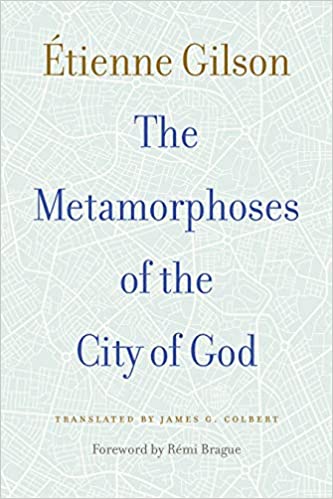
|
The Metamorphoses of the City of God Paperback by Etienne Gilson (Author), James G. Colbert (Translator) The Catholic University of America Press (November 20, 2020). 272 pages. Étienne Gilson (1884-1978) was a French philosopher and historian of philosophy, as well as a scholar of medieval philosophy. In 1946 he attained the distinction of being elected an "Immortal" (member) of the Académie française. He was nominated for the Nobel Prize in Literature in 1959 and 1964.
The appearance of Gilson's Metamorphosis of the City of God, which were originally delivered as lectures at the University of Louvain, Belgium, in the Spring of 1952, coincided with the first steps toward what would become the European Union. The appearance of this English translation coincides with the upheaval of Brexit. Gilson traces the various attempts of thinkers through the centuries to describe Europe's soul and delimit its parts. The Scots, Catalonians, Flemings, and probably others may nod in agreement in Gilson's observation on how odd would be a Europe composed of the political entities that existed two and a half centuries ago. Those who think the European Union has lost its soul may not be comforted by the difficulty thinkers have had over the centuries in defining that soul. Indeed the difficulties that have thus far prevented integrating Turkey into the EU confirm Gilson's description of the conundrum involved even in distinguishing Europe's material components. And yet, the endeavor has succeeded, so that the problem of shared ideals remain inescapable. One wonders which of the thinkers in the succession studied by Gilson might grasp assent and illuminate the EU's path. |
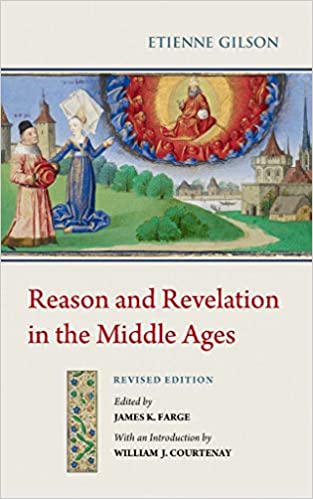
|
Reason and Revelation in the Middle Ages by Etienne Gilson (Author), James K. Farge (Editor), William J. Courtenay (Introduction). Publisher : PIMS; Revised edition (September 21, 2020). 115 pages. Etienne Gilson Reason and Revelation in the Middle Ages, first delivered as the Richard Lectures in 1937, was published in 1938 and became an immediate success. Not only does it contribute to a major question of debate in Christian, Jewish, and Islamic philosophy and religion in the medieval period but it also insists on the validity of truth obtainable through reason as well as revelation, on rational argument alongside religious faith. This message is as important in the twenty-first century as it was in the fourth century of the young Augustine, the thirteenth of St Thomas Aquinas, and the twentieth of the mature Gilson.
|
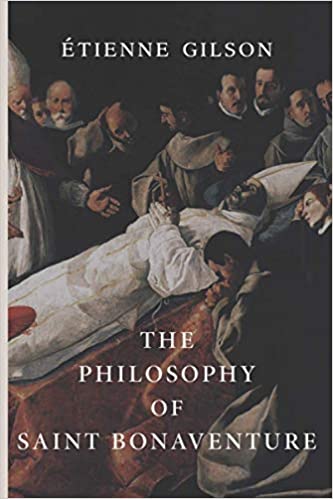
|
The Philosophy of Saint Bonaventure Publisher : Cluny Media (August 25, 2020). 436 pages. The Middle Ages witnessed tremendous strides in the development of Western philosophical thought, culminating in the arrival of Aristotelianism, the installation of Scholasticism, and the great triumph of Thomism. Conventional wisdom on the topic, however, often elides an essential element of the Medieval philosophical project: namely, in Étienne Gilson’s powerful phrasing, that it was “crowned by mysticism, [as] numberless living souls were on the watch, seeking an order of ideas and things capable of satisfying them.” Among these souls, none stands higher than the Seraphic Doctor, Saint Bonaventure. In this masterful survey of the spirit and substance of Bonaventure’s philosophical contribution, Gilson ranges from the existence and essence of God and his will and providence, to creation, the angels, and the intellectual and moral life of man, with special attention to the interplay of grace and nature in the pursuit of beatitude. At the heart of The Philosophy of Saint Bonaventure is the affective life of the Middle Ages, as Gilson demonstrates the abiding unity of mind and heart in the Christian intellectual life, where the desire both to know and to love is fulfilled.
|
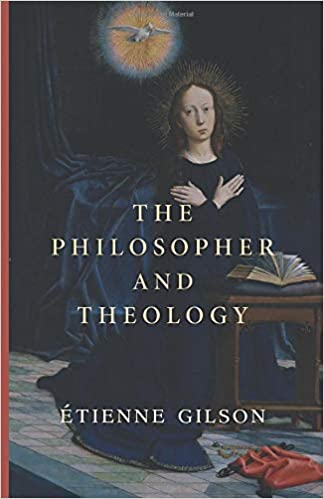
|
The Philosopher and Theology Publisher : Cluny Media (July 31, 2020). 222 pages. Of the Delphic maxims, perhaps the most famous is “Know thyself.” In this deeply personal work, Étienne Gilson tasks himself with fulfilling that Delphic directive, recounting the uncertainties and missteps in his lifelong pursuit of the truth, his devoted conviction to the sure and certain existence of God, and his abiding concern that others might also discover the wisdom he has come to know and love. Formed in the Catholic faith and trained in the philosophical science at the University of Paris, Gilson played a critical role in engaging the modern age with the perspicacious legacy of Thomas Aquinas. The Philosopher and Theology charts the course of that storied career.An engrossing autobiography and illuminating historical study, The Philosopher and Theology provides abundant insights into the ebb and flow of twentieth-century Thomist thought in addition to its compelling vision of reflective and rigorous Catholic scholarship
|
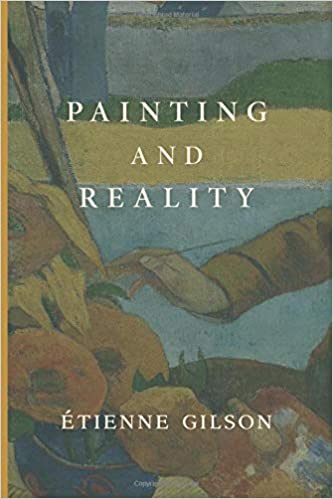
|
Painting and Reality Publisher : Cluny Media (March 20, 2020). 360 pages. The midpoint of the twentieth century, as with the present day, saw no shortage of scholarship on the subject of art. In Painting and Reality, delivered in 1955 for the A. W. Mellon Lectures in the Fine Arts, Étienne Gilson makes what a unique contribution to that vast body of literature. Addressing the problem of what a philosopher can learn from painting, Gilson makes the center of his perspective the work of art in and of itself paired with its relationship to the world of natural reality (ontology) and to the beholder (phenomenology). From this metaphysically robust vantage point, he develops a vision of art as both an investigation into and an affirmation of reality.
|
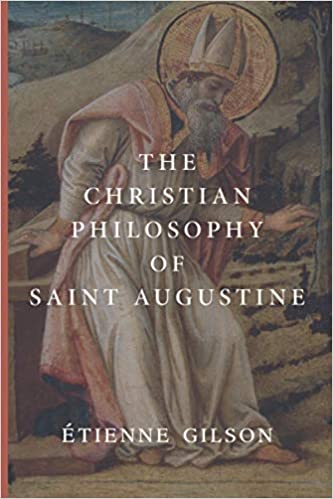
|
The Christian Philosophy of Saint Augustine Publisher : Cluny Media (January 21, 2020). 410 pages. In the teaching of Augustine of Hippo—as in that of the Common Doctor of the Church, Thomas Aquinas—philosophy is recognized as the most complete expression of rational knowledge regarding the highest objects of the human mind. Attending to the data of divine revelation, Augustine recognizes that philosophia, love of wisdom, begins with faith and then moves gradually and by grace into an understanding of that faith. Following the genesis and development of Augustine’s profound understanding and expositions of the Trinity and the Incarnation, creation and original sin, nature and grace, freedom and desire, and the human person as the imago dei, Gilson shows the rich philosophical themes which recur throughout the Augustinian oeuvre. An ideal companion volume to Gilson’s renowned The Spirit of Medieval Philosophy, The Christian Philosophy of Saint Augustine is a comprehensive and coherent map to that vast and intricate world of Augustinian thought which has enriched the entire history of philosophical and theological endeavor following the Patristic era.
|
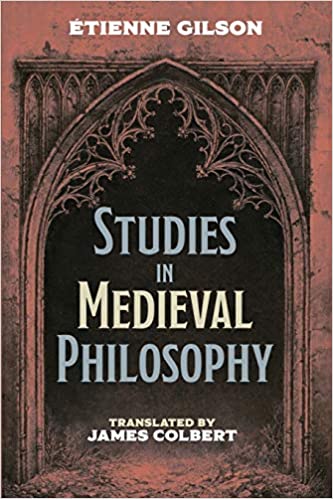
|
Studies in Medieval Philosophy by Étienne Gilson (Author), James G. Colbert (Translator) Publisher: Cascade Books; Translation edition (June 21, 2019. 282 pages. Those new to Gilson can get a sense of the theme that dominated most of his life’s work in the central essay on the historical significance of Thomism. Those familiar with him will perhaps be surprised by the sympathy with which he treats the more traditional theologians who resisted Aquinas and the Latin Averroists alike. Gilson prolongs his seminal demonstration of Scholastic influence on Descartes’s philosophy by showing that there is also some unfortunate Scholastic influence in what we would call Descartes’s natural science, specifically his meteorology. Both new and old Gilsonians will be intrigued by the account of how Descartes was convinced by Harvey that human blood makes a complete circulation, but against Harvey offered his own clear, distinct, and wrongheaded account of why it does.
|
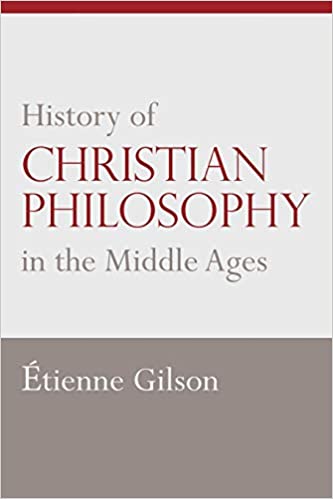
|
History of Christian Philosophy in the Middle Ages Publisher : The Catholic University of America Press; Reprint edition (January 11, 2019). 850 pages. "Invaluable for those who are concerned with the teaching of medieval philosophy or for those who are interested in research in medieval philosophy. Scholarship of a very high order is revealed everywhere in this work but the manner in which the author transcends mere scholarship and captures in a comprehensive grasp the grand perspectives of the medieval tradition in philosophy is the work of philosophical genius." - Franciscan Studies
"A comprehensive analysis of philosophical thought from the second century to the fifteenth century, from the Greek apologists through Nicholas of Cusa. This work is Gilson's magnum opus."--Journal of the History of Ideas "The title conveys precisely how Professor Gilson approaches his material. This is a history of philosophy, but of the philosophy of Christians who employ and adapted the ideas of classical philosophy in constructing a rational view of the world in harmony with Christian thought."--The Philosophical Quarterly |
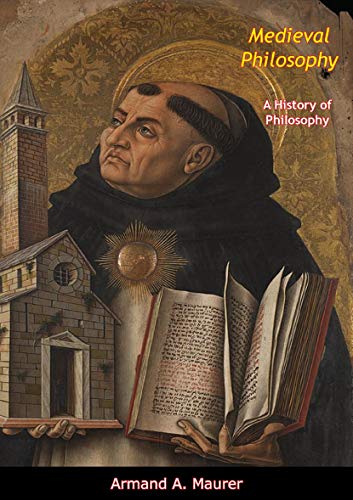
|
Medieval Philosophy: A History of Philosophy by Armand A. Maurer (Author), Etienne Gilson (Editor). Publisher : Muriwai Books (December 12, 2018). [Kindle Edition] This History of Philosophy is intended as an introduction to philosophy itself. The approaches to philosophy are many, but if one aims to give the reader, beyond mere factual information, a genuine philosophical formation, the historical approach becomes a necessity. Much more important than knowledge about philosophy is a true notion of what it is to philosophize. And what better way is there to learn to philosophize than to observe the great philosophers of the past? If one has the understanding and the patience to follow the discussions of Plato, Aristotle, Thomas Aquinas, or Kant, he cannot fail to appreciate what it means to philosophize. And, equally important, he will have a standard of philosophical excellence that will deter him from confusing a shabby piece of philosophy with one that is first-rate.—Etienne Gilson
“This is the second volume of a four volume History of Philosophy written under the general editorship of Etienne Gilson. The series is intended for the serious, but elementary, student of the subject and fulfills that purpose very well. Covering the period from St. Augustine (d. 430) to Francis Suarez (d. 1617), this beautifully made book deals with schools and developments as well as individuals, but is restricted to philosophy and does not wander off either to theology or to general intellectual history. It is a pleasure to read and to hold.”— Carroll Quigley |
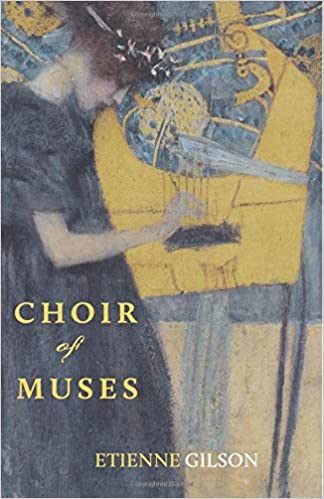
|
Choir of Muses Publisher : Cluny Media LLC (July 29, 2018). 204 pages. Choir of Muses manifests Etienne Gilson’s intimate familiarity with aesthetic theory and the creative process. In a manner simultaneously thought-provoking and charming, Gilson describes the relationships between artists and their work’s inspiration: the women they love. From Wagner and Mathilde to Petrarch and Laura (and touching frequently upon Dante and Beatrice) Gilson examines the effects of these authors’ affairs on their writing, the concept of what constitutes a Muse, and the place of artists’ lovers as both passive and active forces of influence. Throughout the book, Gilson presents the figure of a Muse as an envisioned ideal, inseparable from the woman herself yet only identical to her in the eyes of the artist.
|
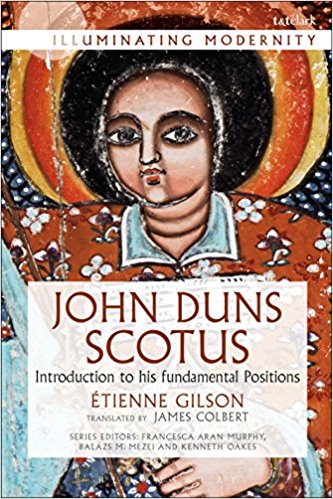
|
John Duns Scotus: Introduction to his fundamental Positions (Illuminating Modernity) Balazs M. Mezei (Series Editor), Francesca Aran Murphy (Series Editor), James Colbert (Translator) Bloomsbury T&T Clark (April 5, 2018). 632 pages. Étienne Gilson's Jean Duns Scot: Introduction à ses positions fondamentales is widely understood to be one of the most important works on John Duns Scotus' texts, which are famous for their complexity. This volume is the first translation into English, with an introduction by Trent Pomplun and an Afterword by John Millbank.
John Duns Scotus is known for his work in natural theology and this work offers a comprehensive introduction to the fundamental positions he stood for. Scotus contributed to the development of a metaphysical system that was compatible with Christian doctrine, an epistemology that altered the 13th century understanding of human knowledge, and a theology that stressed both divine and human will. Scotus' brilliantly complex and nuanced thought, which earned his the nickname “the Subtle Doctor”, left a mark on discussions of such disparate topics as the semantics of religious language, the problem of universals, divine illumination, and the nature of human freedom. |
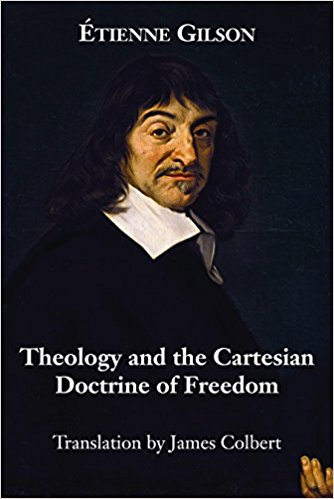
|
Theology and the Cartesian Doctrine of Freedom James G. Colbert (translator) St. Augustines Press; 1 edition (December 15, 2017). 332 pages. Theology and the Cartesian Doctrine of Freedom, now for the first time available in English,was Etienne Gilson's doctoral thesis and part of a larger project to show the medieval roots of Descartes at a time when the very existence of medieval philosophy was often ignored. Young Descartes was sent to La Flaeche, one of the Jesuits schools that offered a complete philosophical program, and Descartes would have had the same philosophical training as a Jesuit. There is some controversy about the exact dates of Descartes's stay at La Flaeche and consequently about his philosophy instructor. By Gilson's calculations Francois Veron taught Descartes for three years. Vaeron eventually left the Jesuits to be free to engage in extraordinarily aggressive anti-Calvinist polemics. If anything, Vaeron's overbearing manner may have contributed to Descartes antipathy toward Scholastic philosophy. (Whatever Descartes's objections to its philosophy curriculum, later in life he recommended la Flaeche as the best school in France.) Descartes,s great intellectual mission in life was not his mathematics but his physics, which was understood as a part of philosophy. We see him navigate the shoals of heated theological and religious strife in his attempt to articulate the metaphysical foundations(and in particular a philosophical vision of God) for his physics or theory of nature. As a layman, he always pleaded ignorance in technically theological matters. He presented himself as a loyal Catholic, quite sincerely in the portrait Gilson paints.
|
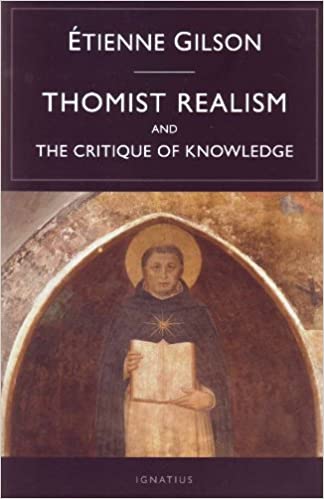
|
Thomist Realism and The Critique of Knowledge Publisher : Ignatius Press; First edition (March 1, 2012). 215 pages. The highly regarded French philosopher, Étienne Gilson, brilliantly plumbs the depths of Thomistic Realism, and false Thomisms as well, in this answer to Kantian modernism. The important work, exquisitely translated by Mark Wauck, brings the essential elements of philosophy into view as a cohesive, readily understandable, and erudite structure, and does so rigorously in the best tradition of St. Thomas.
Written as the definitive answer to those philosophers who sought to reconcile critical philosophy with scholastic realism, Gilson saw himself as an historian of philosophy whose main task was one of restoration, and principally the restoration of the wisdom of the Common Doctor of the Church, St. Thomas Aquinas. Gilson's thesis was that realism was incompatible with the critical method and that realism, to the extent that it was reflective and aware of its guiding principles, was its own proper method. He gives a masterful account of the various forces that shaped the neo-scholastic revival, but Gilson is concerned with the past only as it sheds light on the present. In addition to his criticisms, Gilson presents a positive exposition of true Thomist realism, revealing the foundation of realism in the unity of the knowing subject. |
 |
Methodical Realism: A Handbook for Beginning Realists Ignatius Press (September 20, 2011) 150 pages. This short book is a work of one of the 20th century's greatest philosophers and historians of philosophy, Etienne Gilson. The book's title, taken from the first chapter, may sound esoteric but it reflects a common-sense outlook on the world, applied in a "methodical" way. That approach, known as realism, consists in emphasizing the fact that what is real precedes our concepts about it. In contrast to realism stands idealism, which refers to the philosophical outlook that begins with ideas and tries to move from them to things. Gilson shows how the common-sense notion of realism, though denied by many thinkers, is indispensible for a correct understanding of things -- of what is and how we know what is. He shows the flaws of idealism and he critiques efforts to introduce elements of idealism into realist philosophy ("immediate realism"). At the same time, the author criticizes failures of certain realist philosophers -- including Aristotle -- to be consistent in their own principles and to begin from sound starting points. To these problems, Gilson traces medieval philosophy's failure in the realm of science, which led early modern scientific thinkers of the 17th century unnecessarily to reject even the best of medieval scholastic philosophy. |
 |
Dante and Philosophy Gilson Press (March 4, 2011). 348 pages. |
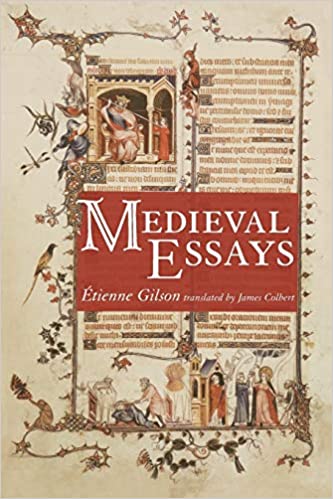
|
Medieval Essays Cascade Books (September 15, 2011). 234 pages. This book is a collection of nine articles by the twentieth century's leading medievalist, Etienne Gilson. A major participant in the revival of Thomistic philosophy, Gilson was a member of the French Academy and, after a university career culminating at the Sorbonne and the College de France, he turned down an invitation from Harvard University to become the guiding spirit of the Pontifical Institute of Medieval Studies at the University of Toronto for several decades. Several of the articles stand on their own as making a significant contribution to topics like St. Anselm's ontological argument for the existence of God. Likewise, "The Middle Ages and Naturalism" contrasts Renaissance Humanists and Reformers with the medievals on the defining issue of their attitude toward nature in order to understand who actually stands closer to the ancient Greeks. All of the articles give an insight into the great synthetic visions articulated by the better-known works of Gilson like The Spirit of Medieval Philosophy. We see Gilson's meticulous spadework for the broader theme of Christian philosophy in his examination of the Latin Averroist Boethius of Dacia's book on the eternity of the world. Gilson finds that Boethius never expresses the view attributed to Latin Averroism that there are contradictory truths in religion and philosophy, although he does think that Boethius is unsuccessful in his account of the relations between philosophy and theology. The opening piece revisits a battle now won (and won in great measure by Gilson's efforts), namely the fight to acknowledge the very existence of medieval philosophy and win its place in the academic world. But the article also makes the effort--which becomes a connecting thread throughout the nine articles-to pinpoint the uniqueness of what Gilson calls Christian philosophy. The closing article studies the profound influence of the great Muslim thinker Avicenna on Latin Europe drawing a parallel between Avicenna's work and that of the great Christian medievals like Thomas Aquinas and Duns Scotus. When Gilson died in 1978, a great deal of his work on the history of philosophy, and specifically God, the primacy of existence or esse over essence, and the impact of Christianity on philosophy had been translated. A significant amount of material, however, has not yet appeared in English. The publication of Medieval Studies represents a vital step in bringing these important works into the English-speaking world.
|
 |
From Aristotle to Darwin & Back Again: A Journey in Final Causality, Species and Evolution Ignatius Press; First edition (September 1, 2009) 241 pages. Darwin's theory of evolution remains controversial, even though most scientists, philosophers, and even theologians accept it, in some form, as a well-attested explanation for the variety of organisms. The controversy erupts when the theory is used to try to explain everything, including every aspect of human life, and to deny the role of a Creator or a purpose to life. It is then that philosophers and theologians cry, "Foul!" The overreaching of many scientists into fields beyond their competence is perhaps explained in part by the loss of an important idea in modern thinking-final causality or purpose. Scientists understandably bracket the idea out of their scientific thinking because they seek natural explanations and other kinds of causes. Yet many of them wrongly conclude from their selective study of the world that final causes do not exist at all and that they have no place in the rational study of life. Likewise, many erroneously assume that philosophy cannot draw upon scientific findings, in light of final causality, to better understand the world and man. The great philosopher and historian of philosophy Etienne Gilson sets out in this book to show that final causality or purposiveness is an inevitable idea for those who think hard and carefully about the world, including the world of biology. Gilson insists that a completely rational understanding of organisms and biological systems requires the philosophical notion of teleology, the idea that certain kinds of things exist and have ends or purposes the fulfillment of which is linked to their natures. In other words, final causes. His approach relies on philosophical reflection on the facts of science, not upon theology or an appeal to religious authorities such as the Church or the Bible. |
 |
The Spirit of Mediaeval Philosophy University of Notre Dame Press; 1st edition (July 31, 2017). 504 pages. In this translation of Etienne Gilson's well known work L'esprit de la philosophie medievale, he undertakes the task of defining the spirit of mediaeval philosophy. Gilson asks whether we can form the concept of a Christian philosophy and, second, whether mediaeval philosophy is not precisely its most adequate historical expression. He maintains that the spirit of mediaeval philosophy is the spirit of Christianity penetrating the Greek tradition, working within it, and drawing out of it a certain view of the world that is specifically Christian. To support his hypothesis, Gilson examines mediaeval thought in its nascent state, at that precise point where the Judeo-Christian graft was inserted into the Hellenic tradition. Gilson's demonstration is purely historical and occasionally theoretical in suggesting how doctrines that satisfied our predecessors for so many centuries may still be found conceivable today. |
 |
The Unity of Philosophical Experience Publisher : Ignatius Press; Revised edition (October 1, 1999). 269 pages. Etienne Gilson The best summary of this book is in the authors words from the forword: "It is the proper aim and scope of the present book to show that the history of philosophy makes philosophical sense, and to define its meaning in regard to the nature of philosophical knowledge itself. For that reason, the various doctrines, as well as the definite parts of these doctrines, which have been taken into account in this volume, should not be considered as arbitrarily selected fragments from some abridged description of the medieval and modern philosophy, but as a series of concrete philosophical experiments especially chosen for their dogmatic significance. Each of them represents a definite attempt to deal with philosophical knowledge according to a certain method, and all of them, taken together, make up a philosophical experience." |
 |
God and Philosophy Publisher : Yale University Press; 2nd edition (March 1, 2002). 182 pages. In this classic work, the eminent Catholic philosopher Étienne Gilson deals with one of the most important and perplexing metaphysical problems: the relation between our notion of God and demonstrations of his existence. Gilson examines Greek, Christian, and modern philosophy as well as the thinking that has grown out of our age of science in this fundamental analysis of the problem of God.
“[I] commend to another generation of seekers and students this deeply earnest and yet wistfully gentle little essay on the most important (and often, at least nowadays, the most neglected) of all metaphysical—and existential—questions. . . . The historical sweep is breathtaking, the one-liners arresting, and the style, both intellectual and literary, altogether engaging.” —Jaroslav Pelikan, from the foreword “We have come to expect from the pen of M. Gilson not only an accurate exposition of the thought of the great philosophers, ancient and modern, but what is of much more importance and of greater interest, a keen and sympathetic insight into the reasons for that thought. The present volume does not fail to fulfill our expectations. It should be read by every Christian thinker.” —Ralph O. Dates, America |
 |
The Christian Philosophy Of St Thomas Aquinas Publisher : University of Notre Dame Press; 1st US - 1st Printing edition (March 31, 1994). 504 pages. In this final edition of his classic study of St. Thomas Aquinas, Etienne Gilson presents the sweeping range and organic unity of Thomistic philosophical thought. The philosophical thinking of Aquinas is the result of reason being challenged to relate to many theological conceptions of the Christian tradition. Gilson carefully reviews how Aquinas grapples with the relation itself of faith and reason and continuing through the existence and nature of God and His creation, the world and its creatures, especially human beings with their power of intellect, will, and moral life. He concludes this study by discussing the life of people in society, along with their purpose and final destiny. Gilson demonstrates that Aquinas drew from a wide spectrum of sources in the development of his thought-from the speculations of the ancient Greeks such as Aristotle, to the Arabic and Jewish philosophers of his time, as well as from Christian writers and scripture. The Christian Philosophy of St. Thomas Aquinas offers students of philosophy and medieval studies an insightful introduction to the thought of Aquinas and the Scholastic philosophy of the Middles Ages, insights that are still revelant for today. |
 |
The Arts of the Beautiful Publisher : Dalkey Archive Press; 1st edition (June 1, 2000). 189 pages. With his usual lucidity, Etienne Gilson addresses the idea that "art is the making of beauty for beauty's sake." By distinguishing between aesthetics, which promotes art as a form of knowledge, and philosophy, which focuses on the presence of the artist's own talent or genius, Gilson maintains that art belongs to a different category entirely, the category of "making." Gilson's intellectually stimulating meditation on the relation of beauty and art is indispensible to philosophers and artists alike. |
 |
Forms and Substances in the Arts (French Literature Series) An engaging companion piece to THE ARTS OF THE BEAUTIFUL, this volume advances Etienne Gilson's theories about art as a process of "making" by focusing on the substances available to an artist. The basis for his argument is grounded in the distinction between arts concerned with the creation of beauty and arts that are primarily functional. He takes up in turn: architecture, sculpture, painting, music, dance, poetry, and the theater, analyzing in each the basic materials afforded the artist, the possibilities of artistic form, and the means of transformation and creation. |
 |
Heloise and Abelard (Ann Arbor Paperbacks) |
 |
The Mystical Theology of St Bernard (Cistercian Studies) In the half century since its first publication in English, this small book has become a classic of medieval theology. Directing his attention to 'perhaps the most neglected aspect' of Cistercian mysticism, the great French medievalist and philosopher Etienne Gilson directs attention to 'that part of [Bernard's] theology on which his mysticism rests', his 'systematics'. Cistercian Publications brings this important book back into print in celebration of the nine-hundredth anniversary of the birth of Saint Bernard, hoping that new generations of scholars will find it food for thought and further research. |
 |
History of Christian Philosophy in the Middle Ages |
 |
Wisdom and Love in Saint Thomas Aquinas (Aquinas Lecture 16) |
Books by Etienne Gilson
Subscribe to:
Comments (Atom)
